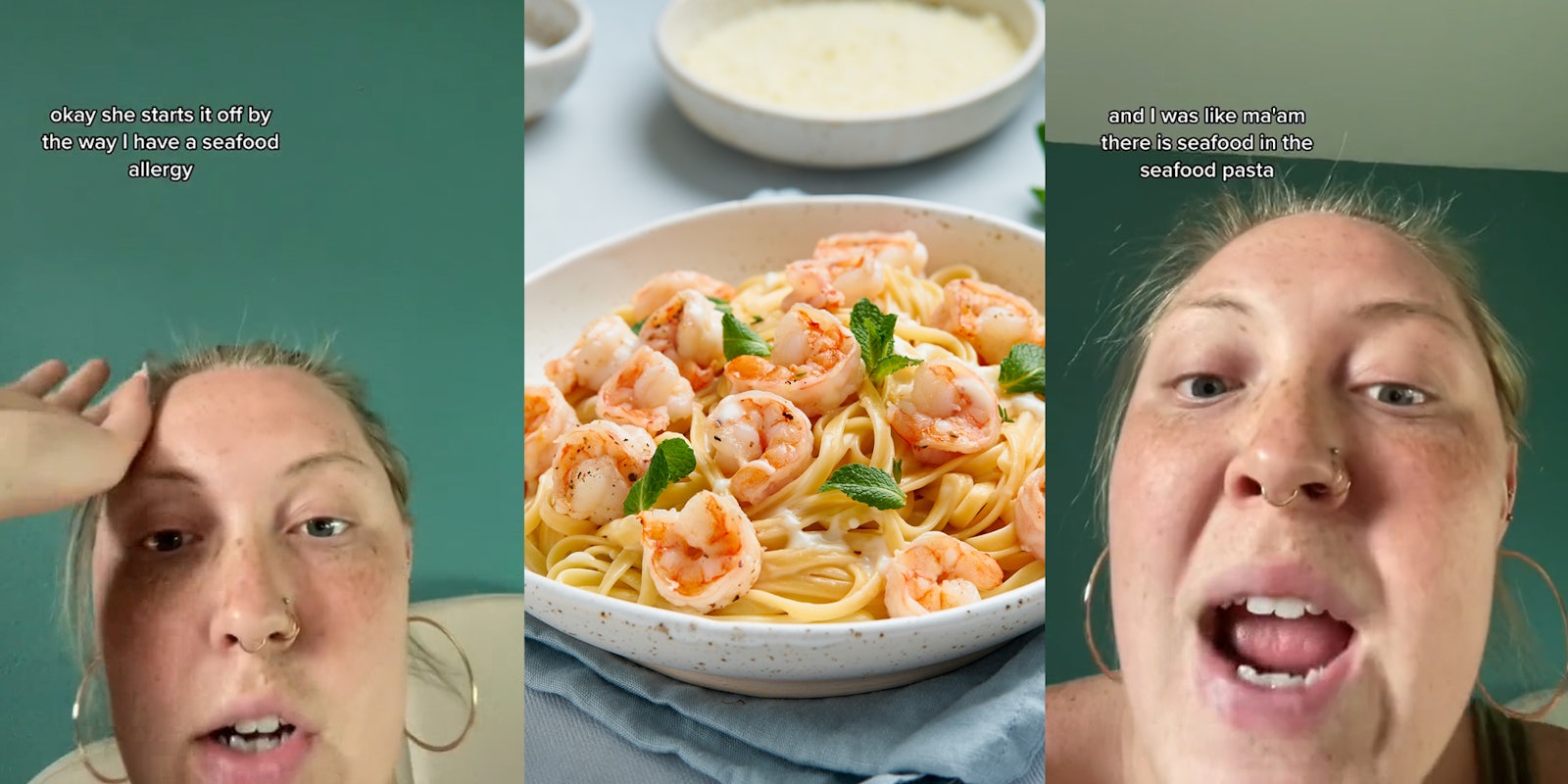Depending on the source, anywhere from 0.5 to 2.5% of the general population has an allergy to shellfish. If someone with this allergy eats shellfish, they can expect hives, abdominal pain, tightness in the throat, and in some more severe cases, anaphylaxis—a reaction that can be fatal.
As a result, restaurants take shellfish allergies incredibly seriously, even if, as TikToker Cass (@the.audcassidy) shares in a now-viral video, their customers don’t.
In a video with over 1.2 million views, Cass recounts a time when one of her customers informed her that they had a seafood allergy, only to order the seafood pasta soon after.
“I said, ‘Ma’am, I don’t know if you can tell this, but there is actually seafood in the seafood pasta,’” Cass recalls.
@the.audcassidy #stitch with @thejarrodbenson licked the plate too 💀 #serverlife #bartenderlife #allergy ♬ original sound – Cass 🤙🏽
A back-and-forth ensued between the two, with Cass insisting that the customer reconsider their choice given their apparent allergy and the customer restating their desire to eat seafood pasta.
During this process, Cass says she asked for clarification on the allergy and even offered to replace the seafood with chicken. The customer refused, Cass says.
Eventually, Cass says she told her manager about the incident. She says the kitchen proceeded to make the dish and give it to the customer.
As it turns out, the customer was not, in fact, allergic to seafood.
“She just wanted—she doesn’t like crab,” the TikToker concludes.
According to Jill Castle, a registered dietitian, this customer is not alone in lying about their allergy.
“Four percent of Americans have food allergies. Yet, research shows that as many as 20 percent of people claim to have a food allergy,” writes Castle for Verywell Health. “Therefore, a lot of people are telling people they have a food allergy when they don’t actually have such an allergy.”
Castle offers several possible explanations for why one might lie about an allergy, ranging from having a sensitivity to certain foods or having a medical condition they’d rather not discuss.
While those faking their allergies may think doing so is harmless, Castle warns that it can have serious ramifications.
“If you don’t have a true food allergy, it’s disingenuous to claim one, and it hurts those who truly do have one as it may make others think that food allergies aren’t a big deal,” Castle explains.
Back on TikTok, users stated their view that those with claimed allergies should be treated as though those allergies are legitimate.
“‘I am legally not allowed to serve you this.’ – end of discussion,” advised a user.
“‘Once I am notified of an allergy I can no longer serve you any items with said allergen,’” suggested another as a retort.
We’ve reached out to Cass via Instagram direct message.



